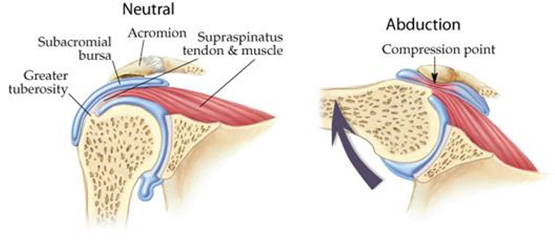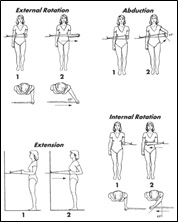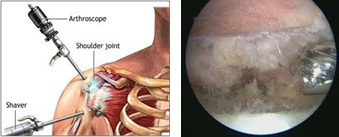Also known as bursitis or tendonitis, this common condition of the shoulder typically causes pain over the lateral aspect of the shoulder and upper arm, especially with use of the arm away from your body or under load. It can also cause pain at night that may disturb your sleep.
This condition is due to inflammation of the bursa (which cushions the area through which the rotator cuff tendons run) and occurs when the arm is elevated, and the bursa and rotator cuff tendons “impinge” under the bone over the top of the shoulder (acromion).

As long as there is no structural problem such as a full thickness tear of one of the rotator cuff tendons this condition is usually reversible. Active rest is key. Avoid overhead activities but do not stop using your shoulder completely. Allow symptoms to guide what you do.
Non-operative treatment revolves around 2 principals:
Firstly, we need to eliminate the inflammation in the bursa by using anti-inflammatory medications and/or cortisone injections. This will result in significant improvement of your pain but will not necessarily treat the underlying cause of the problem.
Secondly and perhaps more importantly we need to improve the mechanics of how the shoulder works. This is done by simple stretches and strengthening exercises to correct imbalances around the shoulder and stop the ongoing impingement from happening. The exercises can be easily undertaken at home, with or without the supervision of a physiotherapist. They are repetitive and can become tedious but are very important to permanent resolution of your symptoms.

Operative treatment is generally reserved for the 10 – 15% of people who fail to improve with this treatment. The surgery is performed arthroscopically (through key holes) and involves removal of the inflamed bursa and any prominent bone on the undersurface of the acromion to provide more space for the rotator cuff tendons.

The surgery can be very successful in eliminating symptoms, but the recovery process does take time. It will usually take 3 to 6 months to get the full benefit from the operation and on occasions this can take longer.

